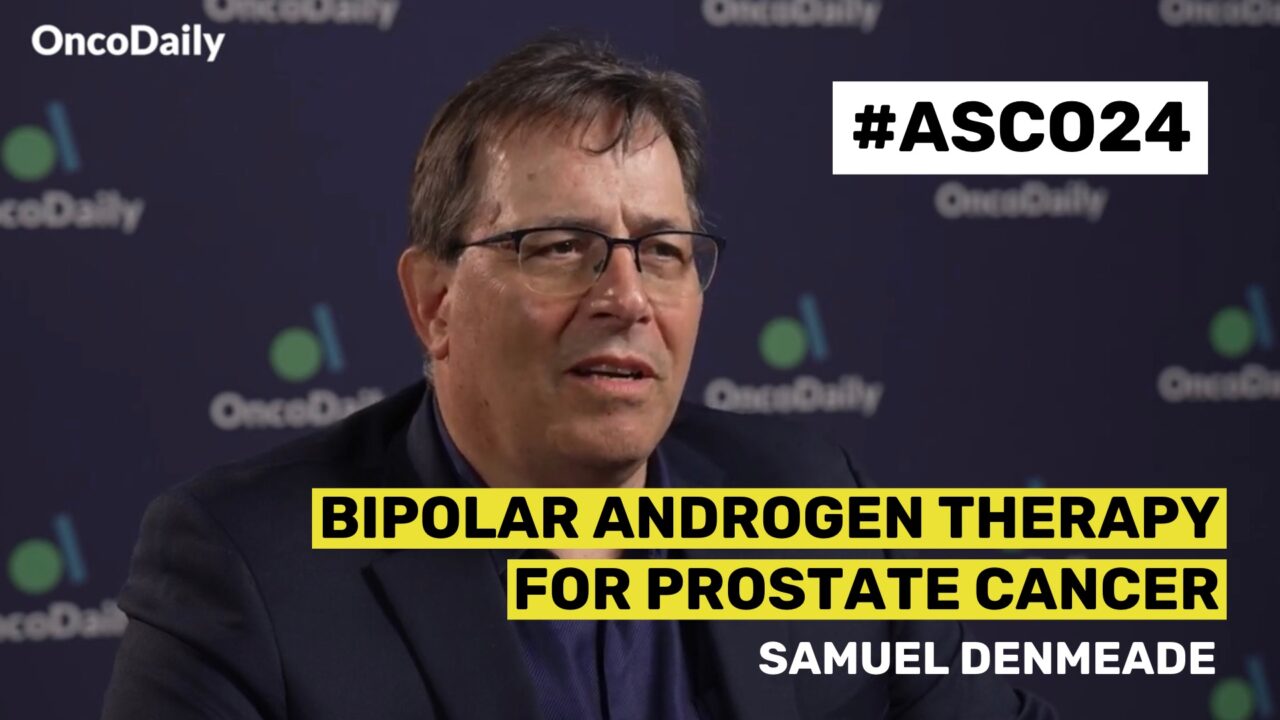The American Society of Clinical Oncology (ASCO) Annual Meeting is one of the largest and most prestigious conferences in the field of oncology. This year, the meeting took place from May 31 to June 4 in Chicago, Illinois. The event gathers oncologists, researchers, and healthcare professionals from around the world to discuss the latest advancements in cancer research, treatment, and patient care. Keynote sessions, research presentations, and panel discussions are typically part of the agenda, providing attendees with valuable insights into emerging trends and innovations in oncology.
This year, OncoDaily was at ASCO 2024 for the first time covering the meeting on-site. We had the pleasure of interviewing researchers who summarized the highlights of their work.
In this video, Dr. Samuel Denmeade, an oncologist at Johns Hopkins, shared insights on ‘Blood-based markers of differential efficacy of bipolar androgen therapy and enzalutamide in the randomized TRANSFORMER trial.‘
Good afternoon, my name is Dr. Samuel Denmeade. I’m an oncologist at Johns Hopkins in Baltimore, Maryland and talking to you today about a new type of treatment that we’ve been studying at Johns Hopkins called bipolar androgen therapy. This is a new type of therapy that involves giving men who developed resistance to standard hormone treatment that we use for prostate cancer, giving them treatment with high doses of testosterone.
It seems a little counterintuitive to do that treatment, but what we’ve noticed is when we give this treatment to men, about 30% of the men have a very good response. The cancer improves, the men feel much better on the testosterone, more strength, sexual function can get better, more energy to do things. And what we’ve been trying to figure out in our research is why and who are the 30% of the men that respond? How can we identify the right patients to give this treatment to? One of the ways we’ve addressed that is to start looking at markers in the blood of the patients.
And this is a new type of technology where you can take the blood and look for DNA in the blood. And in this case, we look for DNA that is related to the androgen receptor, which is the target of testosterone and also the target of the drugs we use to block testosterone. What we found is that if patients had very high levels of that target DNA in the blood, it seemed to predict who would respond to testosterone.
If they had low levels of that DNA in the blood, the patients seem to respond better to standard hormone treatment. So we think this is maybe a new way to stratify patients for this new type of treatment, which could help us in the future in designing studies that are more tailored to the individual patient and potentially give us a way to follow the patient as we do these different treatments, high testosterone and low testosterone to help tell us when to switch from one treatment to the other treatment, which we think is probably the best or the most important aspect of this treatment, the ability to go from high levels to low levels and back again to prevent the cancer from becoming resistant to the treatment.
More videos and content from ASCO 2024 on OncoDaily.


